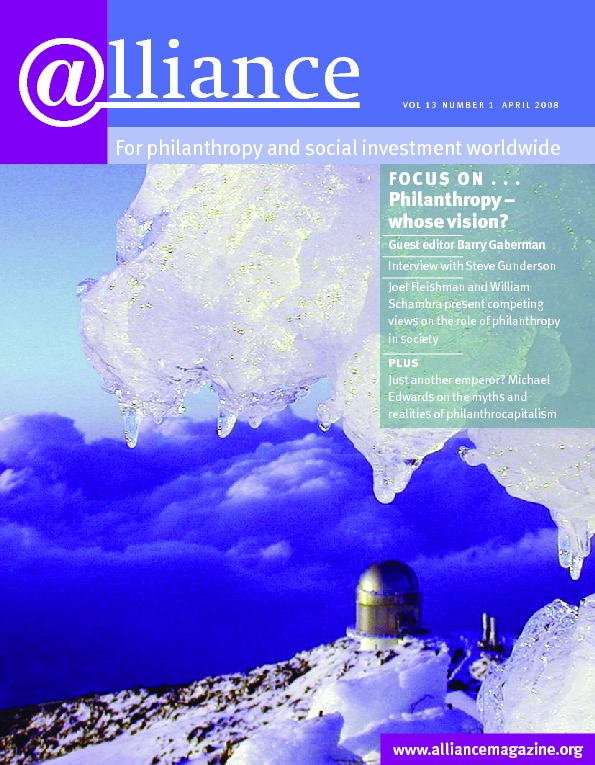One may applaud all the philanthropic accomplishments listed by Joel Fleishman, yet still come away wondering: ‘Is that all there is?’ Public radio, the 911 emergency response system, and so forth are all worthy achievements. But they are far from fulfilling philanthropy’s much-vaunted, century-old promise to do more than merely ameliorate problems, but rather to solve them once and for all by getting to their root causes.
Such was the high aspiration of the first large foundations – Carnegie, Rockefeller, Russell Sage – which were born in the utopian atmosphere of the American progressive movement at the turn of the 20th century, steeped in the faith that the newly developed natural and social sciences now gave us the power to shape our own future. All this required was that public affairs be removed from the hands of benighted local communities, immersed as they were in backward traditions and beliefs, and be put instead into the hands of scientifically trained professional elites, gathered in foundations, research universities, think-tanks, and centralized federal agencies.
Examine any list of major foundation accomplishments, however, and one cannot help but note that it is both diminutive and dated, with nary a single major social problem even slightly dented, much less solved, due to foundation support. And yet, foundations continue to justify themselves as immense repositories of social wisdom and problem-solving prowess. This evidently entitles them to eek out minuscule percentages of funding each year to appropriately supine non-profits, who are willing to fill out absurdly detailed grant applications and file endless unread reports based on sterile, uninformative data – all in order to inflict callous, elitist social experiments on neighbourhoods the foundations regard as incapable of solving their own problems.
With this dismal record, it’s time for foundations to drop the pretence of superior professional wisdom. Instead, they should turn back to the communities until now disempowered by their arrogance, and ask them: What do you think should be done to solve your own problems? How can we be helpful in supporting the plans that you’ve made for your own neighbourhoods, based on traditions and beliefs we once treated as contemptible? Dropping the utopian and illusory quest for the once-and-for-all root cause solution, it might indeed be possible to make modest headway against society’s problems.
More important, foundations would thereby help nurture democratic citizenship, rather than ignoring or suppressing it in pursuit of elite-driven solutions. At last, philanthropy could cease trying to justify itself by compiling contrived, shop-worn, boastful lists of its own accomplishments, and begin focusing instead on how it might be a humble, quiet contributor to a healthy, civically vigorous community life.
William A Schambra is Director of the Bradley Center for Philanthropy and Civic Renewal. Email William@hudson.org





Comments (0)